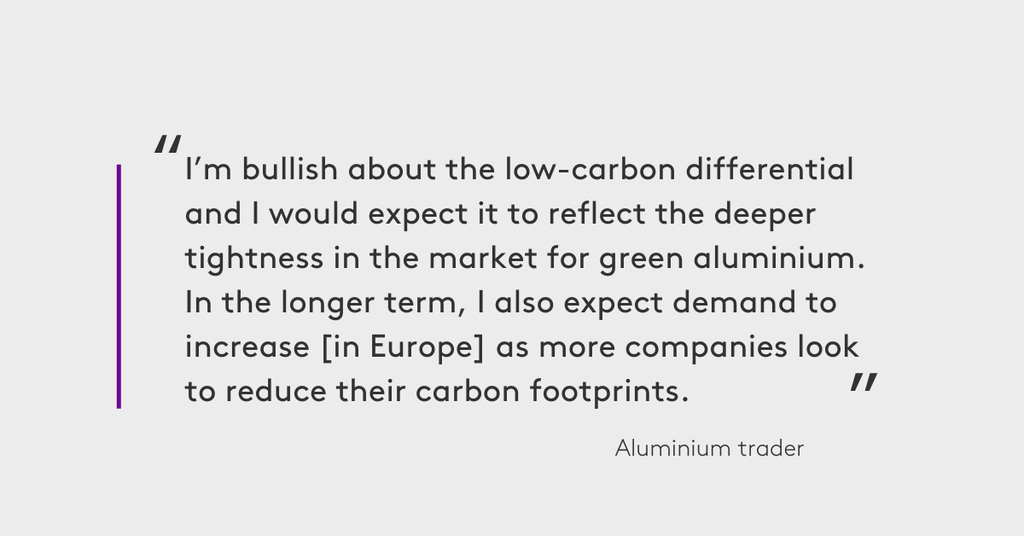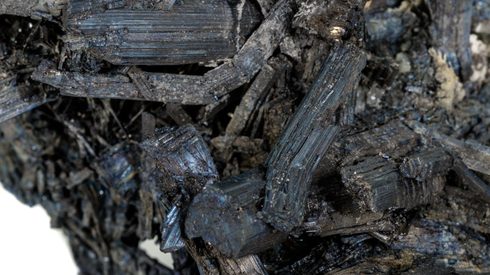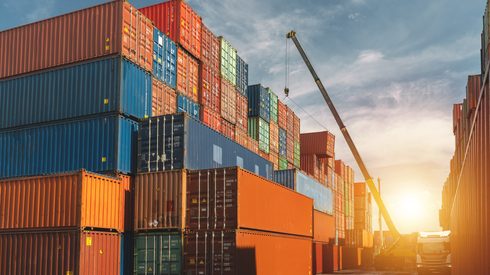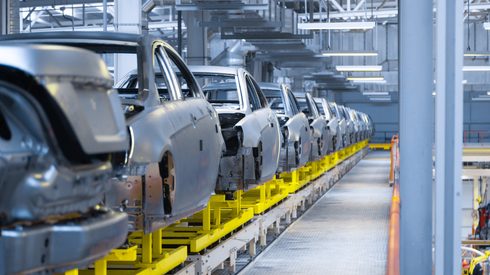A number of sources told Fastmarkets that the differentials are being used as a floating element for 2023 contracts, with consumers needing to lock in “green” units following enhanced Environmental, Social and Governance (ESG) requirements and the wider global spotlight on sustainability, with sellers aiming to capture a premium for it.
Fastmarkets first launched low-carbon differentials in March 2021 for P1020A and value-added products (VAP).
When a low-carbon deal is reported to Fastmarkets, the part of the deal that is a low-carbon differential will be entered into the monthly assessment process for the low-carbon differential, as per the methodology. The underlying premium will be entered into the assessment process for the market it relates to, such as the P1020 or VAP pricing session.
If no low-carbon differential is included, even if the deal is for a low-carbon brand of aluminium, the deal will only be used in the underlying premium assessment to which it relates.
Fastmarkets assessed the aluminium low-carbon differential P1020A, Europe at $10-20 per tonne on Friday, August 5, rising from $5-15 per tonne one month earlier, and up from $0 per tonne when the differential was launched.
“Green inquiries are going through the roof,” one European-based trader told Fastmarkets.
“If a consumer wants to guarantee low-carbon aluminium then the offers are increasing; it’s hard to secure and it’s the only market where you are concerned about availability,” a second trader added.
European P1020 aluminium premiums have been moving lower over recent weeks, under pressure from mounting concerns over a recession, with London Metal Exchange forward spreads in backwardations and weaker demand.
Fastmarkets assessed the aluminium P1020A premium, in-whs dp Rotterdam at $510-540 per tonne on Friday, August 12, down from $520-550 per tonne a week earlier and falling from its recent record high of $600-630 per tonne in May, amid increasingly bearish market sentiment.
But despite falling European premiums, supplies of low-carbon units remain restricted, providing support to the low-carbon differentials.
“If we look objectively at the low-carbon market, the demand has not materially changed; but the supply has. [Certain brands] are both in demand and out of favor due to their origin,” a third trader said.
“I’m bullish about the low-carbon differential and I would expect it to reflect the deeper tightness in the market for green aluminium. In the longer term, I also expect demand to increase [in Europe] as more companies look to reduce their carbon footprints,” the trader added.
Some market participants said offer levels for low-carbon P1020 were at $50 per tonne for 2023, with many anticipating a pick-up in demand for low-carbon aluminium when automotive demand returns with full force.
Low-carbon differentials for VAPs have also been increasing alongside demand for green production across the supply chain.
Fastmarkets assessed the aluminium low-carbon differential value-added product, Europe at $20-35 per tonne on Friday, August 5, unchanged month-on-month, but up from $20-30 per tonne in March.
In line with the existing methodology, for data to be accepted, the aluminium must be produced with a maximum of 4 tonnes of CO2 equivalent per tonne of aluminium produced, as outlined in the Green House Gas Protocol Scope 1 and 2 emissions.
But some market participants said there has been an increase in appetite for more stringent low-carbon production, with higher differentials achievable for such products.
“Where we are seeing the biggest interest in paying a higher premium is the further down you go, when you start moving toward three, two, one, or near zero [tonnes of CO2 equivalent per tonne of aluminium produced] – either through recycling or through electrolysis. That’s when you start seeing the really interesting premiums and that is where the market is really tight right now,” a European producer source told Fastmarkets.
Register for the International Aluminium Conference today
Green aluminium and the drive towards decarbonising the supply chain is one of the key topics on the agenda at International Aluminium 2022. Hear from a panel of industry experts from Alcoa, Alba, the International Aluminium Institute and many more. Join your peers to network and get deeper insights into the market.






